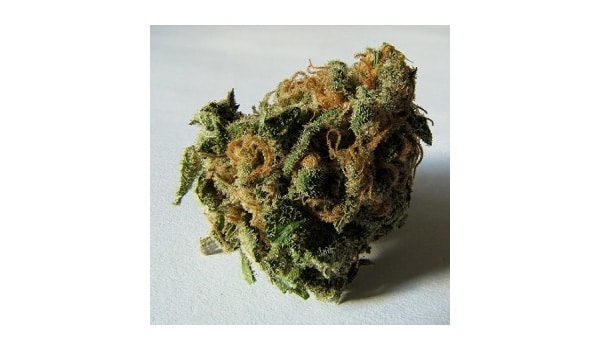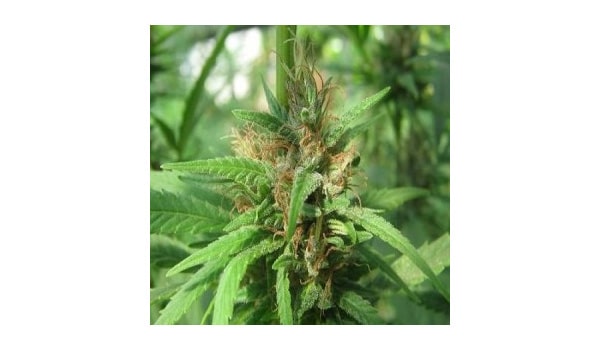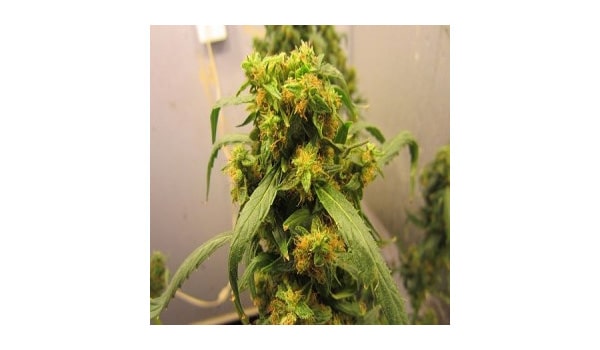
When it comes to growing marijuana plants, the last thing you are going to want are buds that are light, airy, and loose. Dense, sticky buds dripping with THC are optimum for any marijuana grower. Generally this type of inferior bud comes from poor lighting, hot temperatures, or lack of nutrients.
Signs of airy buds
You will easily recognize this type of bud because it appears airy and flaccid. These buds don’t mature properly, and they don’t get dense or firm up as much as normal buds. Consequently, they have less THC. If you have been growing indoors, this type of bud may be due to the plants’ proximity to the light. In outdoor grow areas it can be caused by high temperatures, especially during the flowering phase. This most often occurs in marijuana strains that flower early.

Otherwise, airy buds could come from poor lighting. If your plants haven’t been receiving much light during the flowering season, their buds will likely be light and less potent. The same goes for if your plants haven’t been getting enough potassium.
The five most likely scenarios for your buds ending up airy are improper lighting, too high or too low temperature, nutrients being too much or too little, poor airflow, or root problems.
How to fix airy buds

Basically the only way to “fix” this problem is to prevent it in the first place. There are ten essential ways to ensure that your buds don’t grow airy plants, so read carefully.
- Begin with a good strain
The importance of genetics can’t be stressed enough. The strain you choose will determine the appearance, smell, and taste of your marijuana plants’ buds. Strains can vary greatly and can make or break your success as a marijuana grower. If you start out with so-so genetics, no amount of work in the world is going to get you the result you so desire. It is also important to choose the right strain that works best for you. There isn’t one “best” strain that everyone should choose – it all depends on your lifestyle, climate, and growing setup. Make sure to do the research to determine what kind of genetics will get you the best end result possible.
Indica-dominant marijuana strains generally end up with denser buds, but this is not a 100% success rate.
Sativa-leaning strains end up with buds that are not so dense, but lots of growers choose them anyway because of their “cerebral daytime” high. Additionally, Sativa-leaning strains often have a high yield, meaning each bud could be extremely long rather than the typical “nugget” of indica-dominant marijuana strains.
Strains can vary greatly according to the breeder. If you bought the same strain from three different breeders, you would most likely end up with three very different plants. You, therefore, need to be especially careful to choose a breeder that you are familiar with or have read recommendations for.
When researching different strains, you can use a website such as SeedFinder. It will explain the complete background of each strain, and goes into detail about breeders. It even includes reviews written by growers, as well as pictures to help you decide which strain looks best to you. Some strains have no feedback or only feedback in foreign languages. If this is the case, don’t be afraid to use Google Translate.
Another way to discover which strain is best is by creating a short list of your favorite possibilities as soon as you can. Try some sort of large seed bank online, which will give you data on a wide variety of strains. You can even put in the specific qualities of the strain that you prefer, and will match you up with the strains that might work best for you. You can then take that short list of strains and Google it. Don’t forget to check out the Google images, since those will also give you a good idea of what to expect with that strain. YouTube is another medium that marijuana growers use to educate others, so see if there is an informational video from someone who has grown this specific strain before.
Whatever you choose, don’t decide solely on the appearance of the plant. The end result and the effects of the weed are far more important than whether the plants were pretty. Even if buds aren’t incredibly dense, smoking them could have the perfect effect in your opinion.
- Amount of light
Both quantity and type of lighting are very important, so be sure not to focus your efforts on just one and not the other. New growers often struggle with finding a happy medium in their lighting setup, so they either create a setup that is far too strong or far too weak. Even if they choose the correct lights, they often place the lights the incorrect distance away from the plants, making them either too far from or too close their marijuana plants. This can lead to undesirable effects, such as airy buds.
Where you position your plants and lights depend on what kind of lights you are using. If you’re using Fluorescents or CFLs, for example, you need to ensure that they are as close as you can put them to your plants, without burning them. They should be as close as within a few inches of your plants – just make sure the heat isn’t too great.
If you use LED grow lights, on the other hand, you need to check with the manufacturer to figure out the perfect distance. This is simply because every LED light model has its own recommendations, so there is no ideal way for the positioning of all LED lights.
You need to also have a decent understanding of lights and the way the color spectrum works. Yellow, orange, or red light, for example, generally help your plants have the densest buds possible. This is because red-based light is similar to the sunlight in the fall season. As long as the light is bright, however, the buds will be relatively dense, no matter which colors are predominating.
The most popular type of light utilized during marijuana plants’ flowering stage is by far HPS grow lights. These use energy extremely efficiently and still provide your plants with intense light. They provide the correct color spectrum and they don’t cost too much, so they are an easy one to go with – especially for beginner growers.
Outdoor growers, although they can’t affect the sunlight, can make sure that their plants are receiving eight hours or more of light per day, but not so much (especially on hot days) that their plants start to burn or dehydrate. You can avoid this with a screen or cover of some sort on especially hot days.
No matter what kind of light setup you are using, there are a few basic points you need to take care to follow. First, utilize reflective materials to point all the light at your plants and not waste any. Make sure the lights are positioned closest to the top of your marijuana plants’ canopy, while still not increasing the heat around the plants by too much. You should make sure that every inch of your plant (minus the roots) are exposed to direct, bright light. This is especially important when it comes to buds. Any buds that are shaded from the lights or the sun are not going to be dense and large.
- Temperature
Without the temperature being at the right level, your buds are never going to reach their maximum potential. If you are growing indoors, it is going to be far easier to adjust the temperature accordingly. Genetics is also going to affect this, so hopefully you have chosen optimal strains for your specific climate.
In general, you should keep the temperature between 65 and 80 degrees Fahrenheit during your plants’ flowering phase. Any higher than this and your plants may experience heat burn, airy buds, fox-tailing, and reductions of bud potency and aroma. Indica strains are generally less capable of dealing with heat, whereas sativa strains do pretty well with it. If you’re from a colder climate, however, Indica strains can be very useful because they handle the cold quite well.
These days, almost all strains are some sort of combination between an Indica and a Sativa. So, make sure you do your homework for whatever particular strains you are looking at in order to see how it fares in various conditions.
One way of keeping the temperature of your plants down is by using a micro-sprayer system. This system will allow plants to remain cool even while they are sitting under hot sunlight all day long. The sprayers work via strong pumps or through strong water pressure, therefore creating the fine mist. Each droplet within this mist is less than five microns, meaning they will evaporate with extremely high efficiency and, therefore, cool the air surrounding your plants significantly. They are used both in outdoor growing areas as well as greenhouses. They have a simple installation process while not wasting water or using much water at all.
- Nutrients
Nutrients are a crucial part of getting your plants to produce huge, dense, heavy buds. They were important when your plant was a seedling and was in its vegetative phase of growth, and they are still important during the flowering phase. PH level also comes into play with the absorption of nutrients, so be sure that the pH level of the soil near your plants’ roots is always balanced properly.
When your plants are budding, they need some nitrogen, a large quantity of potassium, and plenty of phosphorous. Each fertilizer bought in a store will come with an N-P-K (Nitrogen – Phosphorus – Potassium) value that will inform you exactly what the ratio is. Use this information to decide how to feed your plants properly. New growers often give their plants too much nitrogen during the flowering stage, so be sure to avoid that because it could actually hinder the bud growth and development. You should have a different nutrient mix during your plants’ vegetative phase than during the flowering phase.
You can get something called Dyna-Gro “Bloom” food for your plants, which is one type of formula that is ideal for feeding plants that are in their flowering phase of growth. If you buy something specifically for your plant’s flowering phase, it is likely going to be adequate. If you don’t want to use nutrients, you can instead get amended super soil to ensure your plants’ nutrients health.
- Ventilation
Not only do your buds need plenty of bright light, but they also need proper airflow to become big and dense. If there are buds that are isolated or are not exposed to moving air, they probably will not get fat and dense like you want them to. Therefore, make sure that all your buds are hit by some ventilation or a light breeze.
One way of achieving this is by actually defoliating your plants. This simply means removing leaves that are blocking the buds from getting the airflow that they need. Be careful, however, as this method should generally only be done by experienced growers. If your plant is at all stressed or unhealthy, this is not the technique to be considering. An alternative option that will stress your plants out less is tucking the leaves instead of cutting them off.
- Root health
Healthy roots are the basis of having a healthy plant. Healthy plants make fat, juicy buds, so it’s in your interest to keep the root system happy and healthy. Your roots need two key ingredients to thrive: water and oxygen. You should never overwater your plants, as this will cause a large number of problems. You should make sure to give them as much oxygen as possible in the air pockets of the soil. In hydroponics systems, the oxygen factor is even more important, which you can use an air stone for. Roots that have plenty of moisture and nutrients will thrive from increased amounts of oxygen.
- Humidity
When the flowering stage has begun, make sure that the humidity level consistently stays below 45%. This is especially important to avoid mold growing within your dense, moist buds. It can also make the potency greater and the smell richer, so it is doubly important to pay attention to this. Ventilation can also help keep the moisture of your plants down.
If you are growing outdoors, you should familiarize yourself with the humidity of your local climate, and choose a strain accordingly. Keep a close eye on the weather so you can cover your plants up if there is a storm coming. You need to keep your plants from getting too wet if you live in a rainy place and protect them from too much wind in a dry place.
- Supplements
Supplements should be added only after you are positive your plant has enough of the base nutrients. It is constantly debated about which supplement is best, but in general yield-increasing supplements are generally considered quite effective. Those supplements often have sugars, amino acids, and other additives. These nutrients all will help your plants with their bud production and development.
Growers who don’t want to deal with store-bought supplements instead will water their marijuana plants will a bit of blackstrap molasses. This both increases the size and density of your plants’ buds while also helping them improve their smell and taste.
- Timing of the harvest
While there isn’t too much to say about this, it is worth mentioning that the harvest time is one of the most effective ways to increase your bud’s size and potency. You need to allow them plenty of time to grow, so make sure that you aren’t harvesting too soon. This will dramatically change how airy and developed your buds are.
- Drying and curing
While the difficult part might seem to be the actual growing of the plants and their buds, equally important is drying and curing the end product. This will not only increase the density of your buds, but also will improve the taste and smell while increasing the potency and “bag appeal” of your end product.
Usually proper drying and curing of your marijuana buds can be done just with one quart wide mouthed mason jars, a drying rack of some sort, and a hygrometer and humidipaks if you feel like it – but those are optional. It’s a simple process that, when researched well and prepared correctly, will lead to amazing results.
Marijuana plant symptoms

– Loose buds
– Light buds
– Airy buds
Marijuana buds can never be too dense, right? Wrong. There is indeed a limit when it comes to density in connection with quality. If your buds are too dense, they will have an increased chance of molding or rotting. Additionally, you should always consider strains that don’t necessarily have the densest buds, because their effect on the user could easily be far superior to a product from a plant with super dense buds.
0 Comment:
Post a Comment